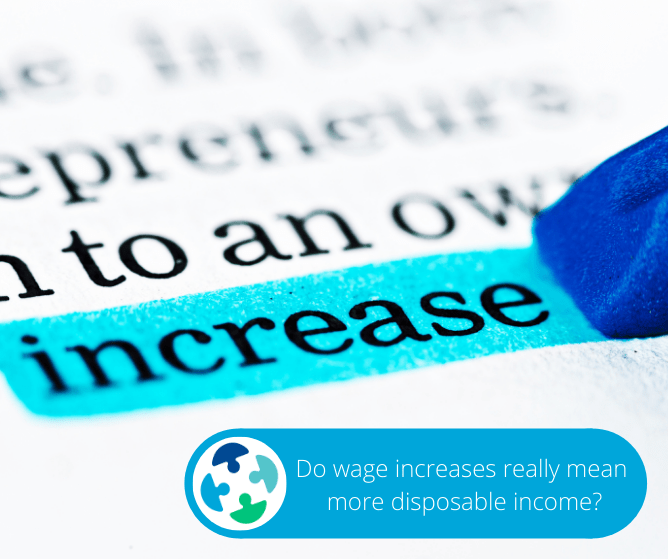Do wage increases really equal more disposable income? Read on as we explore the costs vs benefits of the minimum wage increase right now.
In April 2021, the New Zealand Government implemented another minimum wage increase, bringing the standard minimum wage up to $20 an hour before tax.
This raise of $1.10 aims to ensure the lowest-paid workers have enough money to survive, with the hopes that New Zealanders will have more disposable income to pour back into the economy.
But does this really work?
Does increasing the minimum wage really provide New Zealanders with more disposable income, or has the extra money been absorbed into the increasing costs for goods and services as businesses try to manage the additional cost of labour?
Let’s look at some of the figures as we discuss the knock-on effects of the minimum wage increase.
Who Bears The Cost?
The NZ Government has the best intentions with the minimum wage increase. In an article featured in Radio New Zealand news in April, Prime Minister Jacinda Ardern said:
“Our job as government is to constantly strike that balance of ensuring that our lowest-paid workers are earning enough to meet their cost of living and to thrive. At the same time balancing that against the ability of employers to sustainably keep people on.”
However, some business owners feel that balance has not been struck.
Many businesses are already struggling to survive due to the pandemic; the burden of an increasing cost of labour may be the final nail in the coffin for some.
The only way to cover those increased labour costs for the majority of employers is to increase their prices. However, this isn’t always a viable solution. Industries with fine margins, such as the hospitality industry, are unable to increase prices at the same rate as the wage increase.
They are left with limited options, including the decision to scale back and employ fewer people.
As minimum wages increase, so too do prices. Those precious extra dollars of “disposable income” may end up being spent on the same daily necessities at inflated prices.
The Knock-on Effects Of The Minimum Wage Increase
Of course, when minimum wages increase, there’s a knock-on effect for every other employee in the business. There’s an expectation that others on higher wage levels will also be raised at a similar rate, heightening the burden on employers.
Should employers increase everyone’s wages by $1.10 per hour, or should they reduce the relative pay gap between skill levels?
The first option will increase the cost of labour even further, and the second might demotivate more skilled employees. It’s a tough decision for employers to make.
Does The Economy Really Benefit?
Historically, smaller minimum wage increases have provided positive effects for the economy. But in this latest round of changes, it’s still early days – and the pandemic is still wreaking havoc on businesses.
However, history also shows us that similar increases have led to reduced working hours, reduction in staffing levels, and hiring freezes.
A report from the MBIE predicted that the minimum wage increase would “create some inflationary pressure. MBIE’s minimum wage model suggested a small impact of 0.1%.”
The same report mentioned potential negative impacts on employment levels due to the rising cost of labour and the ripple effect to higher wage bands.
Given the current inflation rate, economists predict that the minimum wage increase will provide more disposable income but say it’s difficult to predict exactly how much impact this will have on worker wellbeing.
Given that it’s still relatively early days, the effects on the economy remain to be seen. The constant rollercoaster of the pandemic and recurring lockdowns skew the data, making it difficult to determine the true impacts of a minimum wage increase.
However, historically, the data shows that the benefits of such a move tend to outweigh the negatives. Let’s hope this is the case for New Zealand as we move forward.
If you need help recruiting for your next role, then don’t hesitate to reach out to the team here at LD Recruit.












